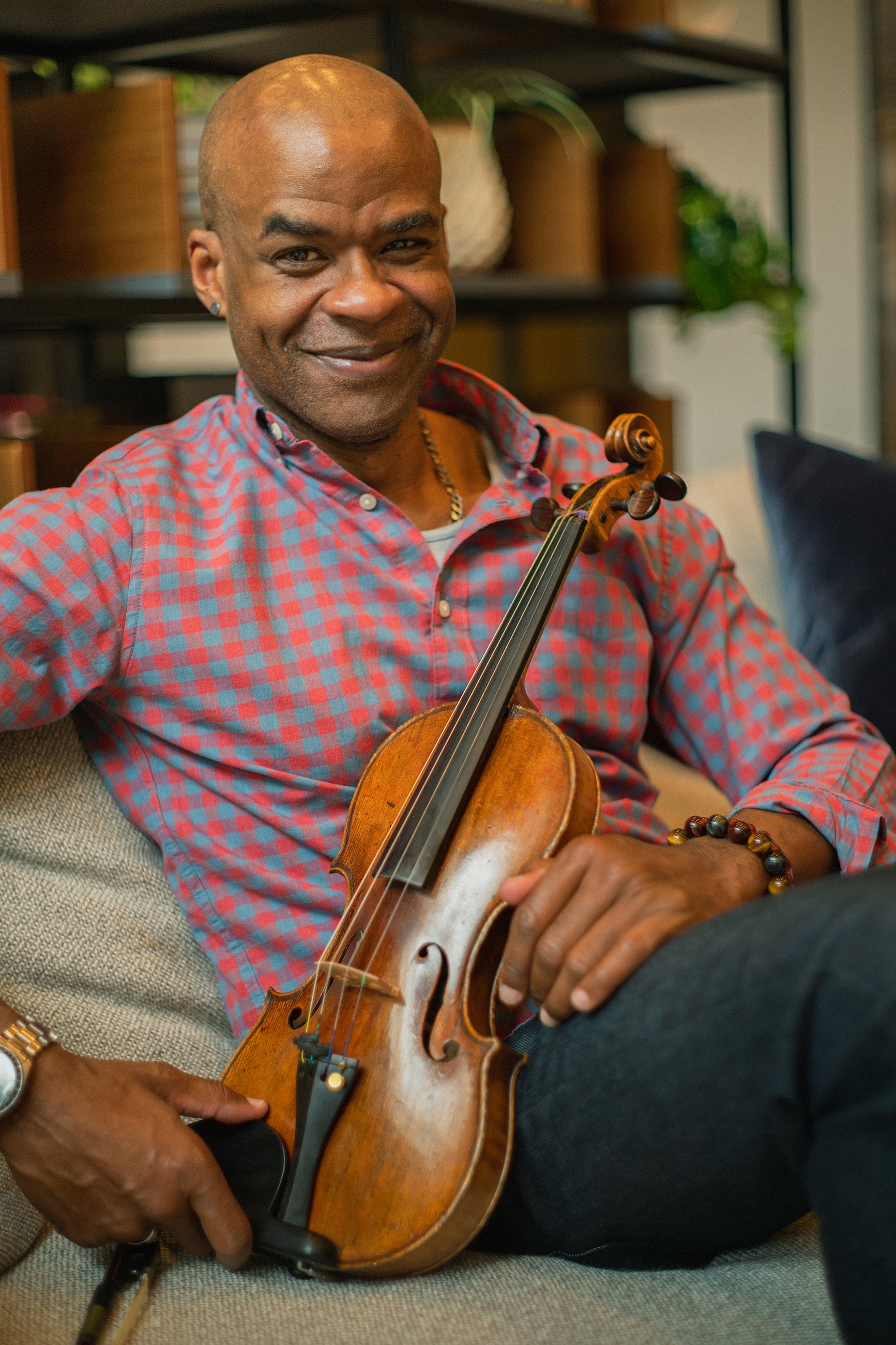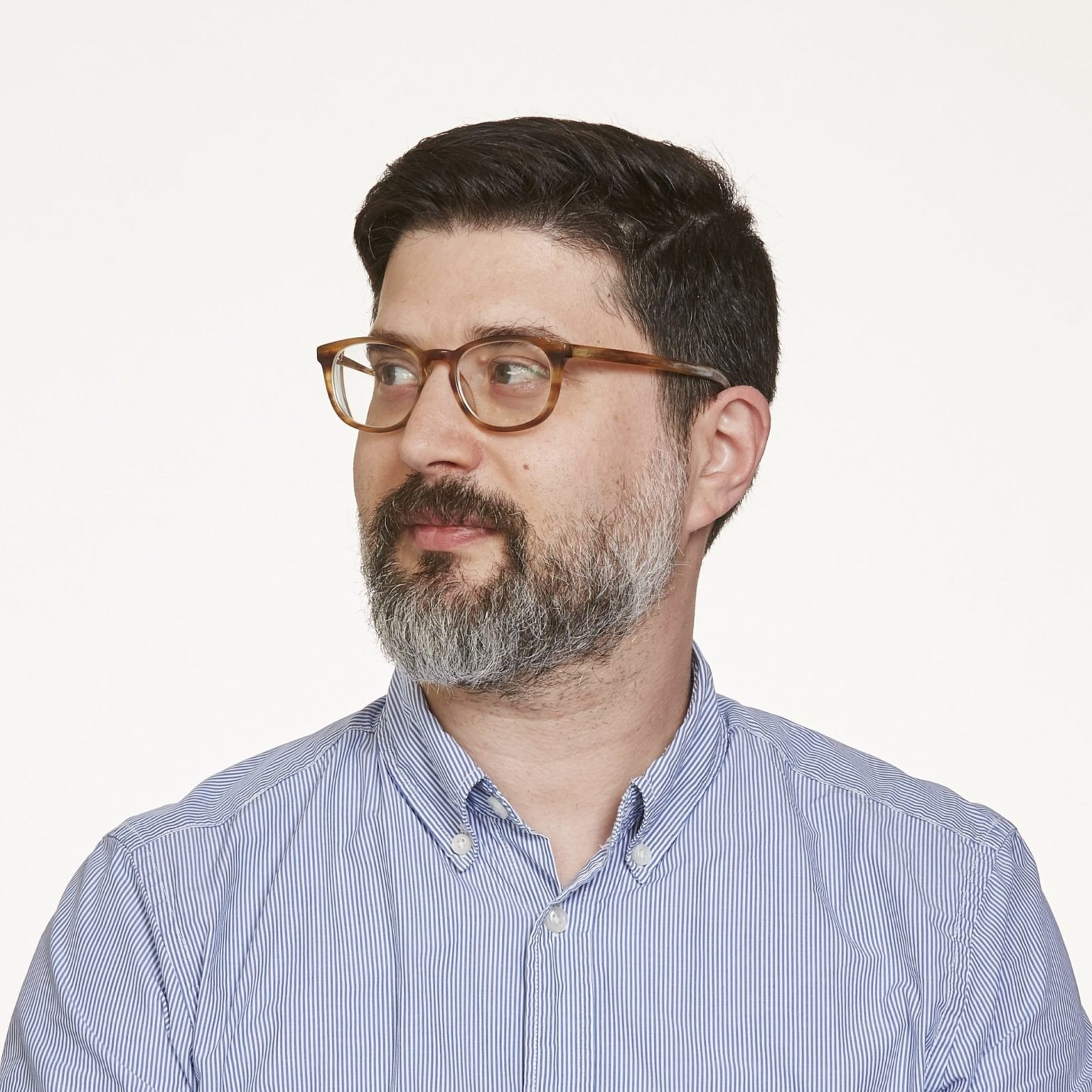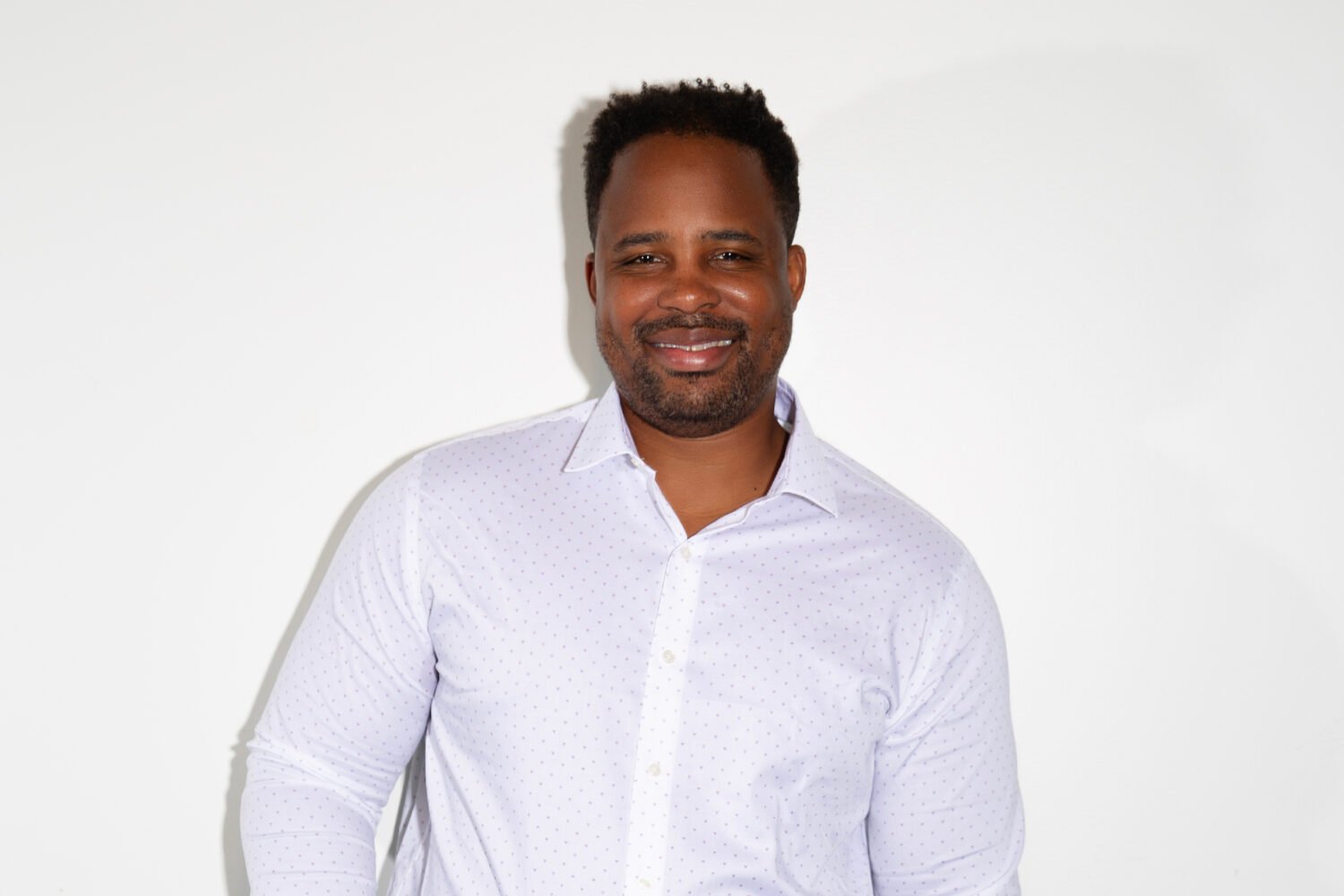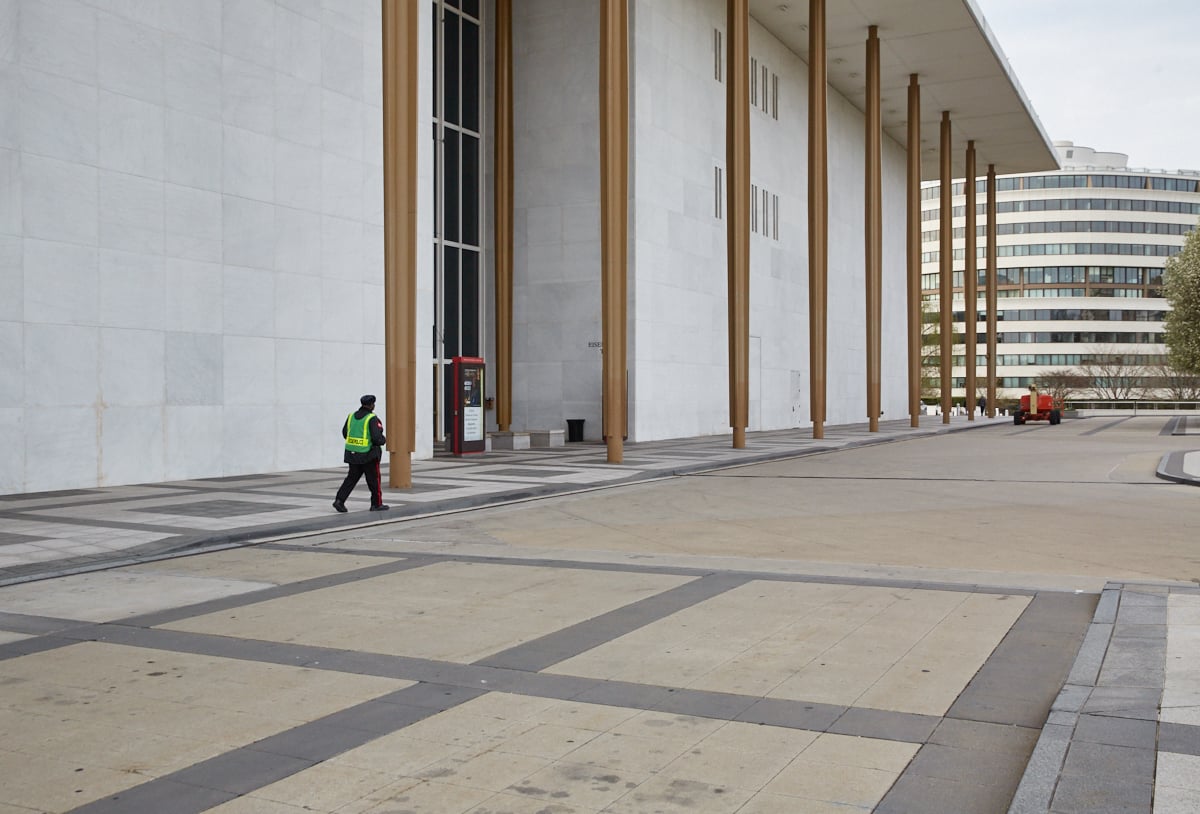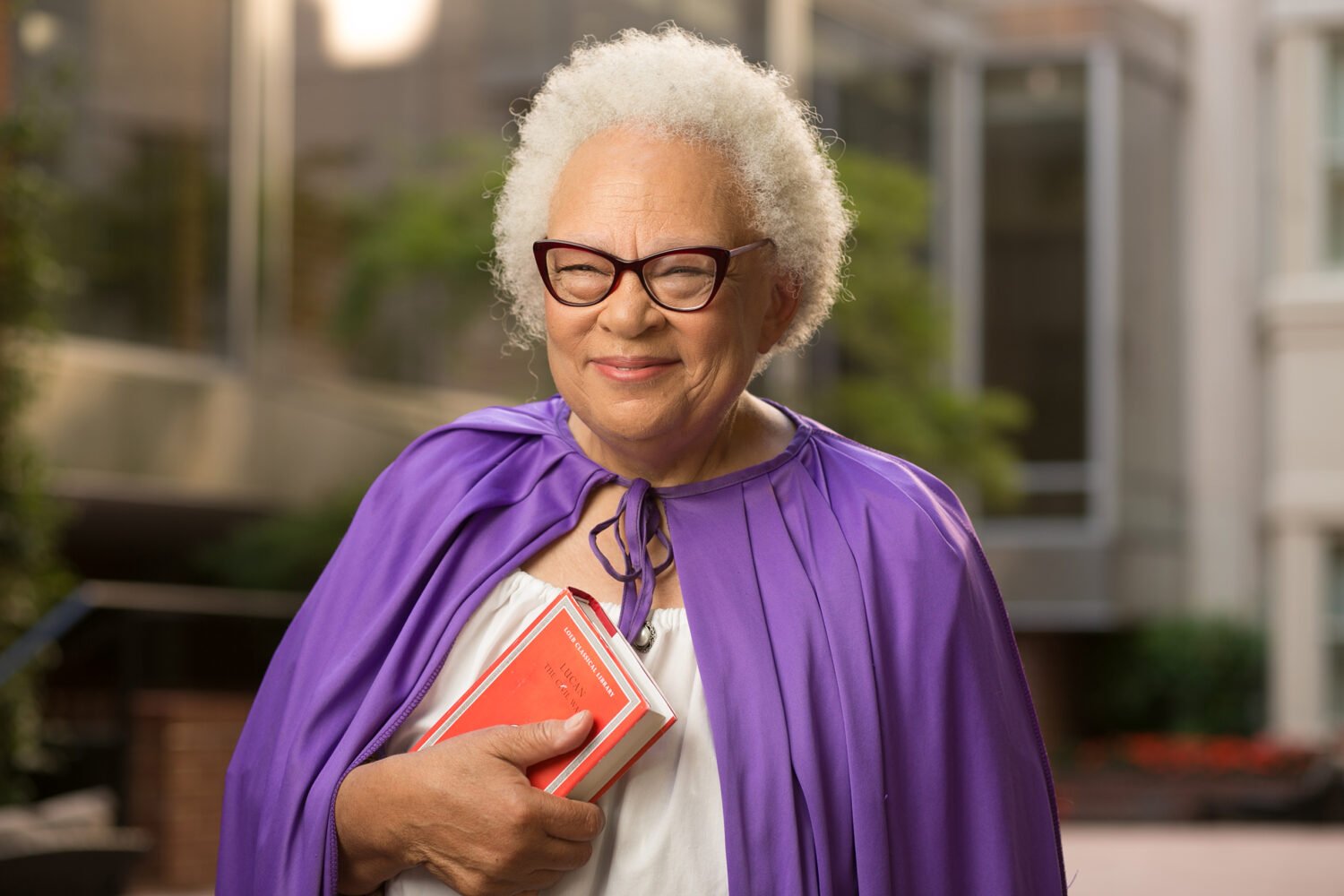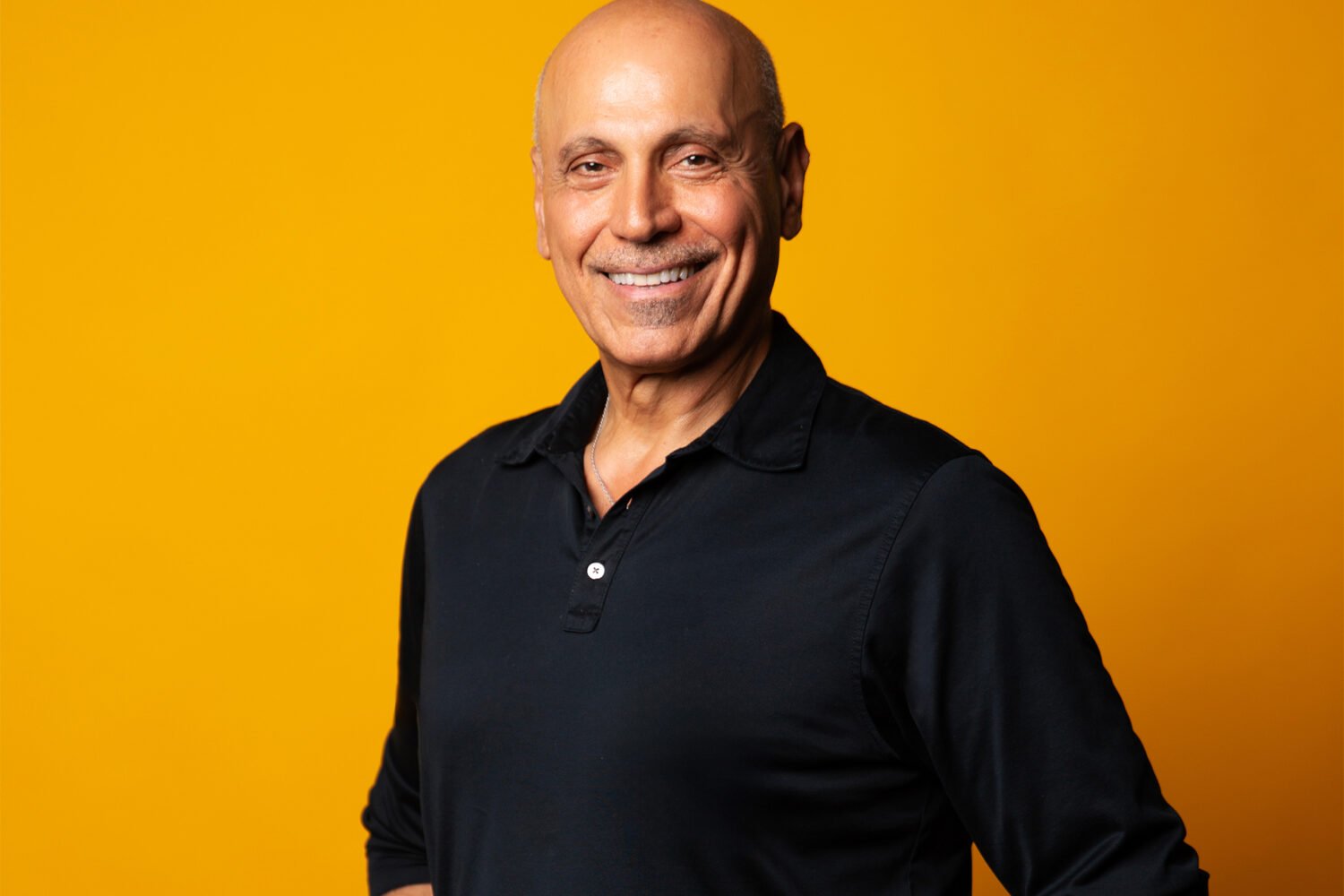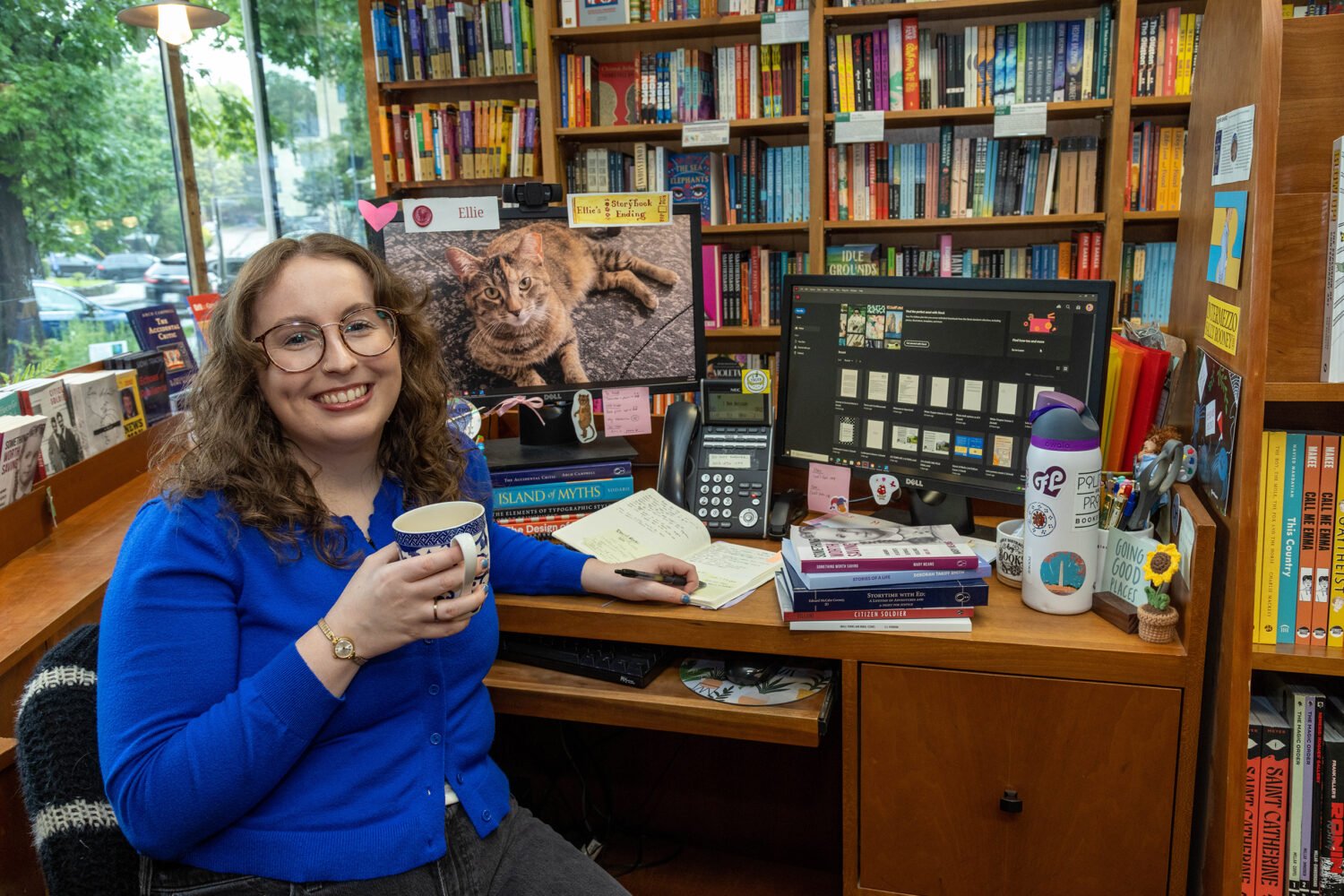Brendan Slocumb was running out of money. It was 2020, the height of the pandemic, and Slocumb, a professional violinist, had lost most of his income. Students stopped coming over for lessons; the wedding gigs had gone away overnight. Within a matter of months, he wouldn’t be able to make rent for the roach-ridden apartment in Northeast that was all he could afford even before Covid hit. At that point, he worried he’d end up homeless.
Slocumb was spending his days zoned out on the couch, eating Doritos and staring at his computer screen. For the first time since he began playing violin at age nine, he had stopped doing the thing he loved most. What was there to even practice for?
One day, bored and depressed, he came across an online news item about how to get a book deal, and he thought back to the sci-fi novel he’d written 20 years earlier. He decided to follow the instructions he’d read online; he sent the thing off to a book agent. Soon enough, Slocumb got a reply. “This novel is absolutely terrible,” he recalls it saying. But the email was actually encouraging: Keep trying, but write about what you know. “I was like, all right, I’m going to show you,” he says. “I’m going to show you.”
Slocumb scrapped the sci-fi book and started fresh, working on a novel that was loosely based on his own life. The central character is a Black violinist growing up in a poor neighborhood who can’t afford a decent instrument, never has a private lesson, and faces hostility, discouragement, and gut-turning racism. He sent a first chapter back to the agent, who was enthusiastic. Slocumb ditched the Doritos and immersed himself in the novel, writing thousands of words each morning on his MacBook. It took him just two months.
The agent loved the draft but said it needed some kind of hook—a mystery, a twist, a cliffhanger. Slocumb thought back over his life and recalled when his family’s house was robbed, back when he was in high school. That traumatic moment when he realized his beloved violin was gone stuck with him. It was a mystery, but also got at the deep emotional connection he had with his instrument. Slocumb wrote new opening and closing sections about the disappearance of the main character’s $10 million Stradivarius. “When I typed that last period, I asked my agent, ‘What should I expect?’ And he said, ‘Absolutely nothing. I’m not going to guarantee you anything. You might be homeless in January.’ I’m like, ‘All right, cool.’ I didn’t know. I honestly did not know.”
Things happened fast from there. In late November 2020, Penguin Random House’s Anchor Books imprint bought the book—titled The Violin Conspiracy—along with a second novel that Slocumb hadn’t yet conceived. Soon he received a check. “I’d never seen so many zeros,” he says. “I cried. I got down on my knees and prayed. I was so grateful. It was an amazing feeling. At age 50, I was like, okay, well, I guess this is my thing now. This is what I do.”
Today, Slocumb lives in a spacious, plant-filled apartment near H Street, Northeast. It’s a big step up from his previous digs, with tastefully white walls and sleek decor enlivened by a fluorescent-hued Dvořák poster and a life-size Spiderman statue. Slocumb is a major superhero fan; his rooms are filled with posters, collectibles, and boxes and boxes of comics. In the windowless office where he writes, there’s a row of vintage Transformers toys running across the desk. A Schumann sonata sits on a music stand against the wall. His violin—a French instrument from the 1750s—is safely strapped inside its case.
When we met there recently to discuss his latest novel, The Dark Maestro, Slocumb was wearing a baseball cap, New Balance sneakers, and a T-shirt with a drawing of Greg Heffley from the Diary of a Wimpy Kid books. The short sleeves showed off his large tattoo of the words “Thank you.”
Gratitude is a big theme for him these days. After The Violin Conspiracy came out in 2022, it was—despite being a debut novel from a novice writer set in the world of classical music—a surprise success. Good Morning America picked it for its book club; NPR put it on its best-of-the-year list. Suddenly, Slocumb was in demand for interviews, speaking appearances, everything that comes with literary prominence.
He then spent four months writing his second novel, Symphony of Secrets, another classical-music mystery. This one focused on intellectual-property theft and the 1920s New York music business, featuring one character loosely based on George Gershwin and another who has autism. Despite its seemingly hard-to-market premise, it also found an eager audience. “He firmly establishes himself as a maestro of musical mystery,” the New York Times wrote in its review of the “pitch-perfect follow-up.”
Part of what makes Slocumb’s writing so vivid is that he’s often describing aspects of his own life—things that really happened to him, people he actually knew. His grandmother shows up in the first novel; his brother Kevin, who died of cancer in 2021, is the model for the second book’s central character. Slocumb grew up in a rough part of Fayetteville, North Carolina, one of four siblings raised by a single mother. As a preteen, he started hanging out with kids who got into trouble. Soon he was committing minor crimes, acts of pointless vandalism. Many of those friends are now dead or in jail, he says. But Slocumb found a different path. It was the violin that saved him: “Instead of coming home from school doing that bad stuff, I would go to rehearsal or would have to practice for a concert.”
Along the way, sympathetic teachers spotted his talent and drive, helping him learn to play and, later, get a scholarship to the University of North Carolina at Greensboro. He supported himself by playing weddings and other gigs with a quartet. Slocumb thrived as a musician, but he met plenty of resistance—students and teachers who, in ways both subtle and not, communicated skepticism that a kid with his background could excel in their world.
The Violin Conspiracy describes one awful racist incident that occurs during a wedding gig, which is based on a real encounter. When he was in college, Slocumb and his quartet were accosted by a bride’s father, apparently infuriated because he hadn’t expected the performers he hired to be Black. “You could see the hatred in his eyes,” Slocumb remembers. “He was just like, ‘Get out of my presence. Get out of my face. I don’t want to see you or anyone who looks like you. Leave.’ We tried to laugh it off, but it was just too deep. That was the first time that any of us had experienced anything like that.”
Several times during our conversation, Slocumb brought up something he seemed to find puzzling and painful. When he has told people in his life about negativity he’s faced as a Black classical musician, they’ve often brushed him off. “They just wouldn’t believe it,” he says. “There was always some excuse. ‘It was something you did. You misunderstood it.’ Always, always, always, always, always. My agent and I had a lot of heated discussions. Some things that happened he just did not believe. He didn’t believe I could go to a wedding and have them say the things that they said. Even my editor at one point was like, ‘Are you sure you want to put this in? Because I find this highly unlikely.’ I’m rolling my eyes. I’m like, dude, I’m telling you. This is my experience. I’m telling you.”
Even his best friend from college would insist Slocumb was overreacting—he must have done something to instigate it or misread what was going on. After The Violin Conspiracy came out, he came to Slocumb and apologized. “He was like, ‘Now I see it. You’re right, that did happen a lot, and you came to me for support but I did not support you. I’m not really sure why I didn’t.’ ” Slocumb was gracious about it. “I’m like, dude, it’s cool. We all evolve. We learn.”
Last year, while Slocumb was working on his third novel, he started to feel unwell. He realized he was losing weight, getting weaker. Then he started throwing up—often multiple times a day. “I’m getting sicker and sicker and sicker,” he says. “I was like, what is wrong with me?”
Slocumb’s medical issues had actually started back in 2017, when he went through what he now refers to as “my episode.” He was working as a music teacher at a school back then, and bronchitis was going around. When he began to have trouble breathing, he figured it was just a passing illness. The kids soon got better; he didn’t. When it became clear something was really wrong, he went to the doctor, who took one look at his dangerously elevated blood pressure and sent him to Sibley. “He’s like, ‘I don’t even know how you made it in here,’ ” Slocumb recalls. “ ‘You need to go straight to the ER. If you don’t, you’re not going to be alive tomorrow.’ ”
At the hospital, doctors said he was having an acute hypertensive episode, whose cause they were never able to determine. He was in the ICU for a week, until medication finally controlled the issue. But by that point, his body was in rough shape. “For the next several months, it was some of the most difficult times in my life,” he says. “I would have to crawl from my bed to the bathroom because I was too weak to walk. Every month, I would go to the ER because I felt like it was kind of happening again.”
Slocumb couldn’t eat, was losing weight at an alarming rate, could barely drag himself from the bed to the couch to write.
Severely elevated blood pressure can damage organs, and Slocumb’s kidneys were wrecked by the episode; doctors said he would eventually need a transplant. Changing his diet would help, so he immediately went vegan. Though he’d lost a lot of weight, things were pretty stable.
But then last year, Slocumb started feeling sick again. This time, it turned out, his kidneys were finally failing. He added his name to an organ-recipient list, but time was running out. He couldn’t eat, was losing weight at an alarming rate, could barely drag himself from the bed to the couch, where he was writing the best he could. If a kidney didn’t come through soon, he wasn’t going to survive.
That’s when his best friend, Ian Hargis, stepped in, offering to donate one of his organs. “I was like, ‘Are you serious?’ ” Slocumb says. In November, they both checked into George Washington University Hospital, where doctors performed the transplant surgery. “I’m grateful every single day that I don’t feel sick like that anymore,” he says, pointing toward the thank you tattoo on his arm. “I am still here, and I truly, truly believe God has kept me here for a reason: to keep spreading his word and keep spreading happiness. And to keep writing books.”
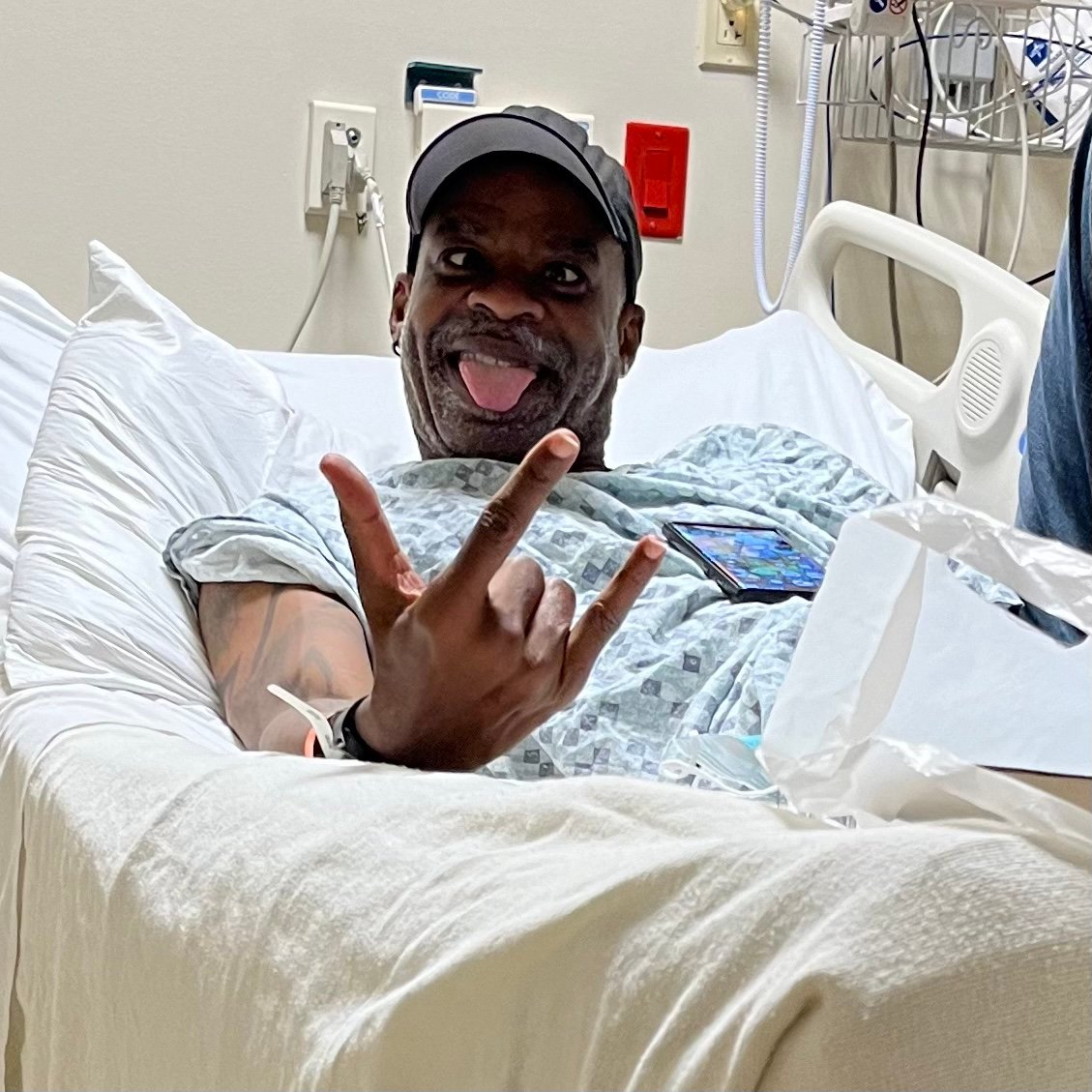
As with the previous two, Slocumb’s new novel, The Dark Maestro, has elements that are deeply personal. The book combines his passions for comic books and classical music while exploring a complicated (fictional) father/son relationship that allowed him to work out some of his bad feelings about his own mostly absent dad. At the center of the action is a rising cellist from Southeast DC, whose family gets embroiled in an organ-harvesting ring. That wasn’t the original idea; while Slocumb was working on a book with a different plot, he found out about his kidney situation and quickly changed course. He wrote the novel as fast as he could, managing to get it done before his surgery.
Though he’s only just now starting to get his stamina back after the transplant and is gearing up to promote The Dark Maestro, Slocumb is already writing his next novel, which he won’t reveal anything about other than that it’s based on a true story. In fact, the author has already mapped out a whole string of books, with his own life story planned for number seven. (“My memoir is going to be something,” he says with a laugh.)
But mostly, Slocumb plans to continue in the same vein as his first three. “I want to be the Stephen King of musical thrillers,” he says. “I want to write 100 books that all have to do with music. Being confronted with my own mortality not once but twice, I’m at the point where I totally get why I’m here, what I should be doing, how not to waste time and energy on stupid stuff. And I feel like I’m helping people. When I see someone on the street, I stop and tell them, ‘Oh, that is a really nice hat.’ It’s not hard to make people happy. We all have a choice to be miserable or to be happy. I’m going to choose happiness. What can I do to facilitate happiness for you? I think that’s why we’re here.”
Brendan Slocumb was running out of money. It was 2020, the height of the pandemic, and Slocumb, a professional violinist, had lost most of his income. Students stopped coming over for lessons; the wedding gigs had gone away overnight. Within a matter of months, he wouldn’t be able to make rent for the roach-ridden apartment in Northeast that was all he could afford even before Covid hit. At that point, he worried he’d end up homeless.Slocumb was spending his days zoned out on the couch, eating Doritos and staring at his computer screen. For the first time since he began playing violin at age nine, he had stopped doing the thing he loved most. What was there to even practice for?
One day, bored and depressed, he came across an online news item about how to get a book deal, and he thought back to the sci-fi novel he’d written 20 years earlier. He decided to follow the instructions he’d read online; he sent the thing off to a book agent. Soon enough, Slocumb got a reply. “This novel is absolutely terrible,” he recalls it saying. But the email was actually encouraging: Keep trying, but write about what you know. “I was like, all right, I’m going to show you,” he says. “I’m going to show you.”
Slocumb scrapped the sci-fi book and started fresh, working on a novel that was loosely based on his own life. The central character is a Black violinist growing up in a poor neighborhood who can’t afford a decent instrument, never has a private lesson, and faces hostility, discouragement, and gut-turning racism. He sent a first chapter back to the agent, who was enthusiastic. Slocumb ditched the Doritos and immersed himself in the novel, writing thousands of words each morning on his MacBook. It took him just two months.
The agent loved the draft but said it needed some kind of hook—a mystery, a twist, a cliffhanger. Slocumb thought back over his life and recalled when his family’s house was robbed, back when he was in high school. That traumatic moment when he realized his beloved violin was gone stuck with him. It was a mystery, but also got at the deep emotional connection he had with his instrument. Slocumb wrote new opening and closing sections about the disappearance of the main character’s $10 million Stradivarius. “When I typed that last period, I asked my agent, ‘What should I expect?’ And he said, ‘Absolutely nothing. I’m not going to guarantee you anything. You might be homeless in January.’ I’m like, ‘All right, cool.’ I didn’t know. I honestly did not know.”
Things happened fast from there. In late November 2020, Penguin Random House’s Anchor Books imprint bought the book—titled The Violin Conspiracy—along with a second novel that Slocumb hadn’t yet conceived. Soon he received a check. “I’d never seen so many zeros,” he says. “I cried. I got down on my knees and prayed. I was so grateful. It was an amazing feeling. At age 50, I was like, okay, well, I guess this is my thing now. This is what I do.”
Today, Slocumb lives in a spacious, plant-filled apartment near H Street, Northeast. It’s a big step up from his previous digs, with tastefully white walls and sleek decor enlivened by a fluorescent-hued Dvořák poster and a life-size Spiderman statue. Slocumb is a major superhero fan; his rooms are filled with posters, collectibles, and boxes and boxes of comics. In the windowless office where he writes, there’s a row of vintage Transformers toys running across the desk. A Schumann sonata sits on a music stand against the wall. His violin—a French instrument from the 1750s—is safely strapped inside its case.
When we met there recently to discuss his latest novel, The Dark Maestro, Slocumb was wearing a baseball cap, New Balance sneakers, and a T-shirt with a drawing of Greg Heffley from the Diary of a Wimpy Kid books. The short sleeves showed off his large tattoo of the words “Thank you.”
Gratitude is a big theme for him these days. After The Violin Conspiracy came out in 2022, it was—despite being a debut novel from a novice writer set in the world of classical music—a surprise success. Good Morning America picked it for its book club; NPR put it on its best-of-the-year list. Suddenly, Slocumb was in demand for interviews, speaking appearances, everything that comes with literary prominence.
He then spent four months writing his second novel, Symphony of Secrets, another classical-music mystery. This one focused on intellectual-property theft and the 1920s New York music business, featuring one character loosely based on George Gershwin and another who has autism. Despite its seemingly hard-to-market premise, it also found an eager audience. “He firmly establishes himself as a maestro of musical mystery,” the New York Times wrote in its review of the “pitch-perfect follow-up.”
Part of what makes Slocumb’s writing so vivid is that he’s often describing aspects of his own life—things that really happened to him, people he actually knew. His grandmother shows up in the first novel; his brother Kevin, who died of cancer in 2021, is the model for the second book’s central character. Slocumb grew up in a rough part of Fayetteville, North Carolina, one of four siblings raised by a single mother. As a preteen, he started hanging out with kids who got into trouble. Soon he was committing minor crimes, acts of pointless vandalism. Many of those friends are now dead or in jail, he says. But Slocumb found a different path. It was the violin that saved him: “Instead of coming home from school doing that bad stuff, I would go to rehearsal or would have to practice for a concert.”
Along the way, sympathetic teachers spotted his talent and drive, helping him learn to play and, later, get a scholarship to the University of North Carolina at Greensboro. He supported himself by playing weddings and other gigs with a quartet. Slocumb thrived as a musician, but he met plenty of resistance—students and teachers who, in ways both subtle and not, communicated skepticism that a kid with his background could excel in their world.
The Violin Conspiracy describes one awful racist incident that occurs during a wedding gig, which is based on a real encounter. When he was in college, Slocumb and his quartet were accosted by a bride’s father, apparently infuriated because he hadn’t expected the performers he hired to be Black. “You could see the hatred in his eyes,” Slocumb remembers. “He was just like, ‘Get out of my presence. Get out of my face. I don’t want to see you or anyone who looks like you. Leave.’ We tried to laugh it off, but it was just too deep. That was the first time that any of us had experienced anything like that.”
Several times during our conversation, Slocumb brought up something he seemed to find puzzling and painful. When he has told people in his life about negativity he’s faced as a Black classical musician, they’ve often brushed him off. “They just wouldn’t believe it,” he says. “There was always some excuse. ‘It was something you did. You misunderstood it.’ Always, always, always, always, always. My agent and I had a lot of heated discussions. Some things that happened he just did not believe. He didn’t believe I could go to a wedding and have them say the things that they said. Even my editor at one point was like, ‘Are you sure you want to put this in? Because I find this highly unlikely.’ I’m rolling my eyes. I’m like, dude, I’m telling you. This is my experience. I’m telling you.”
Even his best friend from college would insist Slocumb was overreacting—he must have done something to instigate it or misread what was going on. After The Violin Conspiracy came out, he came to Slocumb and apologized. “He was like, ‘Now I see it. You’re right, that did happen a lot, and you came to me for support but I did not support you. I’m not really sure why I didn’t.’ ” Slocumb was gracious about it. “I’m like, dude, it’s cool. We all evolve. We learn.”
Last year, while Slocumb was working on his third novel, he started to feel unwell. He realized he was losing weight, getting weaker. Then he started throwing up—often multiple times a day. “I’m getting sicker and sicker and sicker,” he says. “I was like, what is wrong with me?”
Slocumb’s medical issues had actually started back in 2017, when he went through what he now refers to as “my episode.” He was working as a music teacher at a school back then, and bronchitis was going around. When he began to have trouble breathing, he figured it was just a passing illness. The kids soon got better; he didn’t. When it became clear something was really wrong, he went to the doctor, who took one look at his dangerously elevated blood pressure and sent him to Sibley. “He’s like, ‘I don’t even know how you made it in here,’ ” Slocumb recalls. “ ‘You need to go straight to the ER. If you don’t, you’re not going to be alive tomorrow.’ ”
At the hospital, doctors said he was having an acute hypertensive episode, whose cause they were never able to determine. He was in the ICU for a week, until medication finally controlled the issue. But by that point, his body was in rough shape. “For the next several months, it was some of the most difficult times in my life,” he says. “I would have to crawl from my bed to the bathroom because I was too weak to walk. Every month, I would go to the ER because I felt like it was kind of happening again.”
Slocumb couldn’t eat, was losing weight at an alarming rate, could barely drag himself from the bed to the couch to write.
Severely elevated blood pressure can damage organs, and Slocumb’s kidneys were wrecked by the episode; doctors said he would eventually need a transplant. Changing his diet would help, so he immediately went vegan. Though he’d lost a lot of weight, things were pretty stable.
But then last year, Slocumb started feeling sick again. This time, it turned out, his kidneys were finally failing. He added his name to an organ-recipient list, but time was running out. He couldn’t eat, was losing weight at an alarming rate, could barely drag himself from the bed to the couch, where he was writing the best he could. If a kidney didn’t come through soon, he wasn’t going to survive.
That’s when his best friend, Ian Hargis, stepped in, offering to donate one of his organs. “I was like, ‘Are you serious?’ ” Slocumb says. In November, they both checked into George Washington University Hospital, where doctors performed the transplant surgery. “I’m grateful every single day that I don’t feel sick like that anymore,” he says, pointing toward the thank you tattoo on his arm. “I am still here, and I truly, truly believe God has kept me here for a reason: to keep spreading his word and keep spreading happiness. And to keep writing books.”
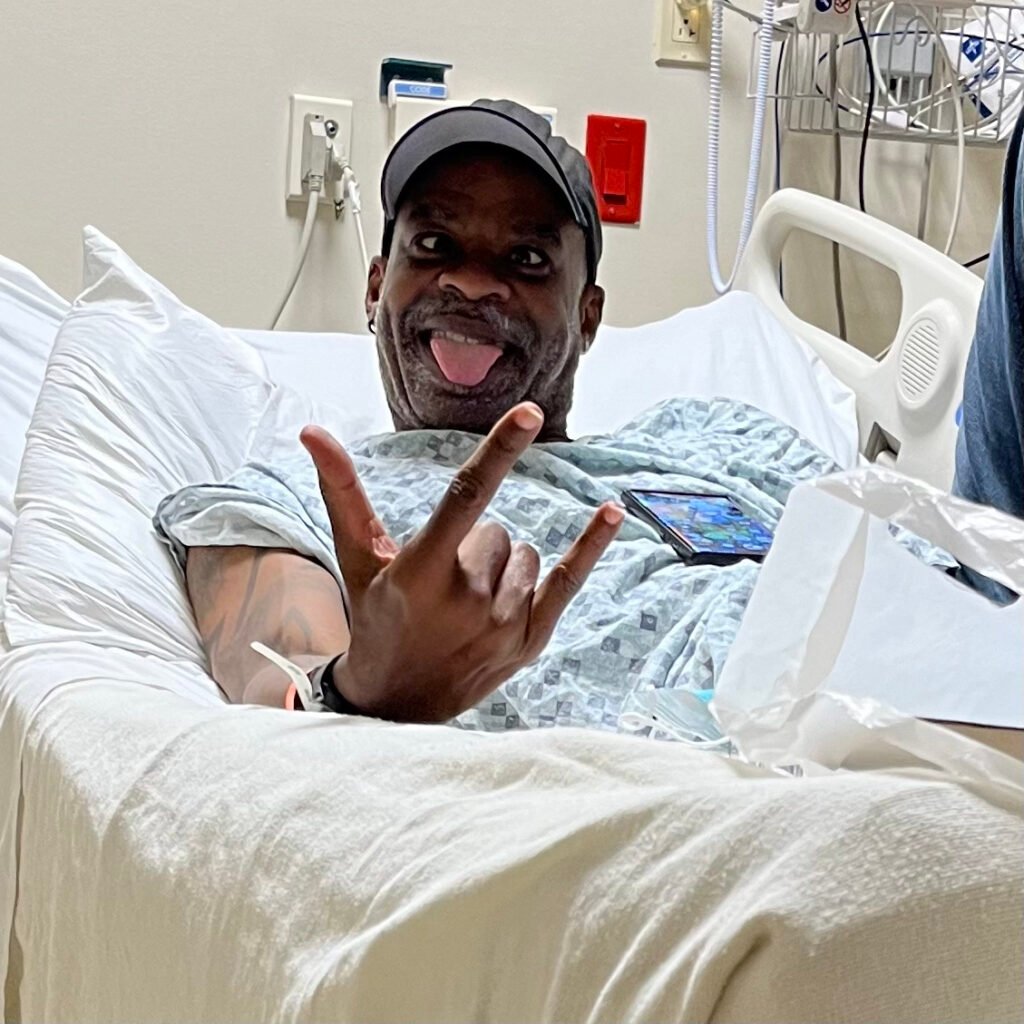
As with the previous two, Slocumb’s new novel, The Dark Maestro, has elements that are deeply personal. The book combines his passions for comic books and classical music while exploring a complicated (fictional) father/son relationship that allowed him to work out some of his bad feelings about his own mostly absent dad. At the center of the action is a rising cellist from Southeast DC, whose family gets embroiled in an organ-harvesting ring. That wasn’t the original idea; while Slocumb was working on a book with a different plot, he found out about his kidney situation and quickly changed course. He wrote the novel as fast as he could, managing to get it done before his surgery.
Though he’s only just now starting to get his stamina back after the transplant and is gearing up to promote The Dark Maestro, Slocumb is already writing his next novel, which he won’t reveal anything about other than that it’s based on a true story. In fact, the author has already mapped out a whole string of books, with his own life story planned for number seven. (“My memoir is going to be something,” he says with a laugh.)
But mostly, Slocumb plans to continue in the same vein as his first three. “I want to be the Stephen King of musical thrillers,” he says. “I want to write 100 books that all have to do with music. Being confronted with my own mortality not once but twice, I’m at the point where I totally get why I’m here, what I should be doing, how not to waste time and energy on stupid stuff. And I feel like I’m helping people. When I see someone on the street, I stop and tell them, ‘Oh, that is a really nice hat.’ It’s not hard to make people happy. We all have a choice to be miserable or to be happy. I’m going to choose happiness. What can I do to facilitate happiness for you? I think that’s why we’re here.”
This article appears in the May 2025 issue of Washingtonian.

